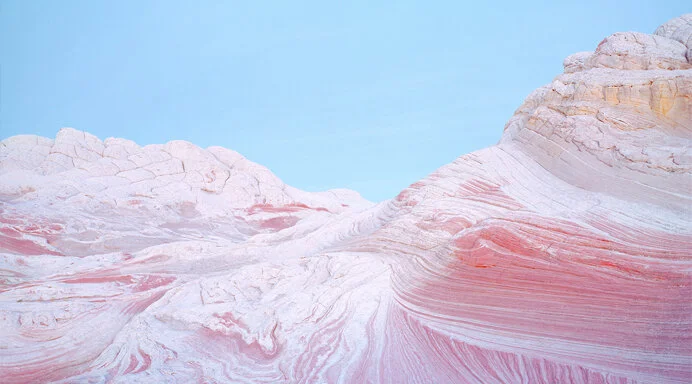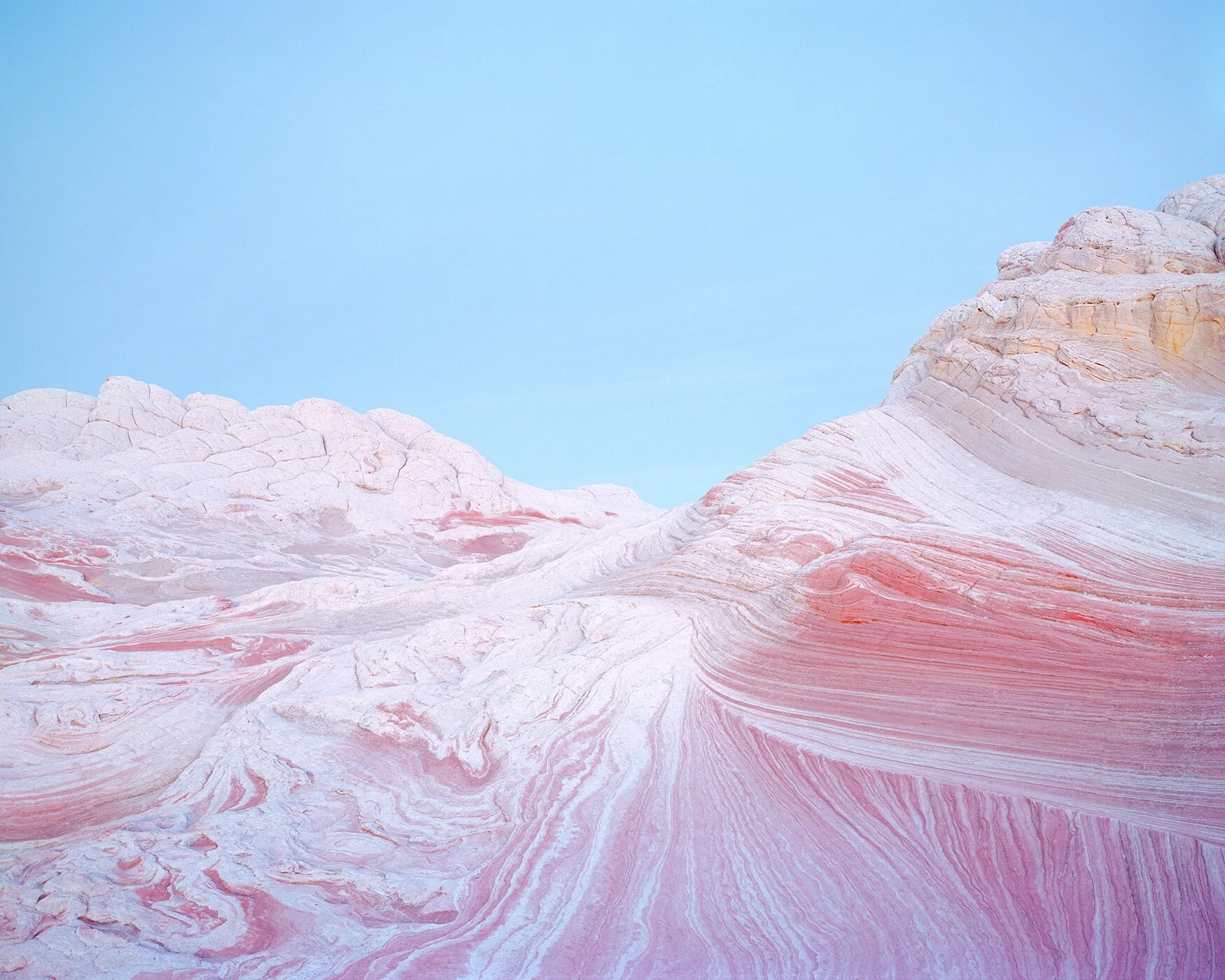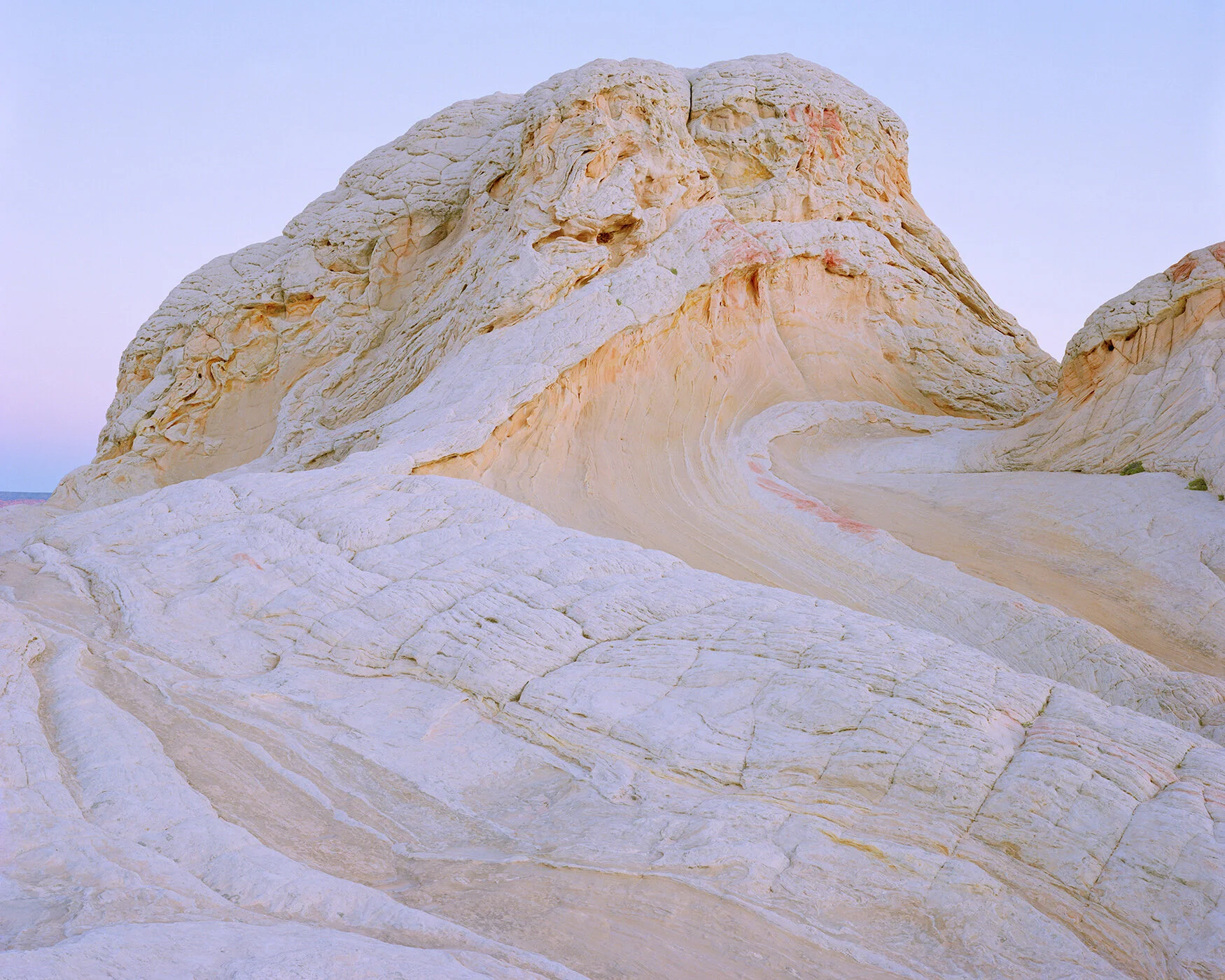Artist Spotlight: Luca Tombolini
Quell your wanderlust with the contemporary landscapes of photographer Luca Tombolini. His fascination with Earth's primordial places leads him to the desert, where he seeks to capture fantastic moments in every photo.His work is on view on the SVLA1 screen at the Courtyard by Marriott in Downtown LA until February 25th!
Your project on view, "LS X," is a journey into the American West – what about it drew you there?
I’ve always been fascinated by its majesty and variety of places which I saw in many photographers’ pictures. So for a couple of years I have been checking out places around the west on Google Earth. My main doubt was if I could photograph in a way which didn’t overlap on someone else’s work. Looking at it now I can say it’s a fairly original point of view.
You didn't originally intend to become a photographer - what about photography caught your interest, and how has that affected your process?
I fell in love with photography when I encountered large format cameras. That happened during the university years. I really like the way it forces you to think about the image - it creates a ritual which peaks when you finally release the shutter. I also like the fact that I’m not coming back home with hundreds or thousands pictures from a trip, and within the few that I have I can still remember the feeling of the moment when I decided to shoot. As in movies, I like long and slow paced visual stories; the dilated rhythm gives me the time to get lost into details - I’m looking at something but it actually feels more like looking inwards into me.
Is it difficult to re-acclimate to modern life when you return from your photographic journeys?
Yes, a lot! The first days when I’m back to my normal life, I feel like I’m living in a bubble. I see how people run around and give all they’ve got to something I can barely get a grasp of. I look back to the other possible way of living, then to this one, then back to desert, and so on. Sometimes I just stop on the side of the road and try to look at city life as I would look at a badlands in New Mexico. In that moment, I think that everything is so familiar, yet so bizarre.
Your photos are soft, serene – like you're capturing less of a landscape and more of a feeling. What is it that you seek to convey in your works?
Of course I don’t go somewhere with the idea of describing the landscape, and I only start to photograph when I get the feeling of being somewhere special. That includes also a sense of being detached from what I identify with culturally, being born and raised in this time. Not having to be a social being, not having a schedule, and not having to comply with expectations really sets me free. To this extent photography became a mean on my trials and errors path to my individuation process, and the images are descriptions of moments of it.
How do you think the "digital era" of contemporary photography affects shooting landscapes?
Everyone finds a way about how to communicate his ideas and feelings. Shooting film does work for me but I’m not a purist about the medium. To be honest, I think that a digital capture has way less magic within it than an analog shot; with that said, I’ve seen amazing work made in digital as well.
Who inspires you most lately?
My latest infatuations are photographer Sonja Braas, Chinese director Er Cheng of ‘The Wasted Years’ and YouTube channel PBS Space Time. Lifetime loves are Hiroshi Sugimoto, Massimo Vitali and C.G. Jung.
Do you have any additional projects coming up that we should be on the lookout for?
Yes. For the next series, I'll be trying to evolve what I’m doing by detaching images from what we expect to see about the world as seen with our eyes. It’s a step I’ve long thought about and I feel it’s the right time to do so.
To see more of Luca Tombolini, visit his website and Instagram, and make sure to catch him on the SVLA1 screen in Downtown LA until February 25th!




